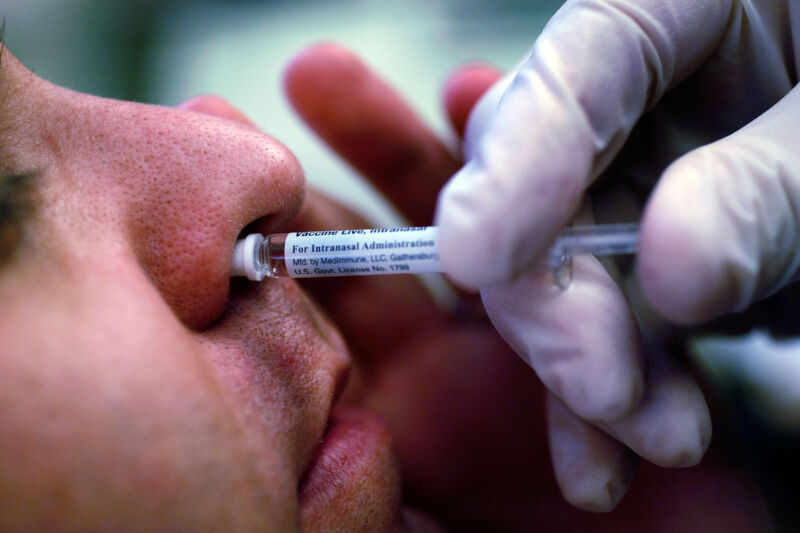Nasal COVID vaccine blows clinical trial, flinging researchers back to the lab

Enlarge / A man receives an H1N1 nasal flu spray vaccine at an urgent care center on October 16, 2009, in Lake Worth, Florida. (credit: Getty | Joe Raedle)
The nasal version of the Oxford/AstraZeneca COVID-19 vaccine failed an early-stage clinical trial, dashing hopes for better infection prevention and forcing researchers to re-think the design.
Many experts have hyped the potential of nasal COVID-19 vaccines. They argue that snorting the shots could encrust the nasal mucous membranes with snotty antibodies-namely IgA-and other immune defenses that could blow away SARS-CoV-2 virus particles before they have the chance to cause an infection. Currently, the shots given intramuscularly in arms provide robust systemic immune responses that prevent severe disease and death but spur relatively weak antibody levels on mucous membranes and, relatedly, don't always prevent infection.
Researchers at the University of Oxford hoped to easily adapt their existing COVID-19 vaccine for such an infection-blasting schnoz spritz. The Oxford/AstraZeneca vaccine is a viral vector-based design, using a weakened, benign virus to carry the genetic code of the SARS-CoV-2 spike protein to human cells. The benign virus, in this case, is an adenovirus, a type best known for causing mild cold-like illnesses in humans, though the specific virus used in the vaccine was isolated from chimpanzees. (This vaccine has not been authorized in the US but is used in dozens of countries worldwide.)